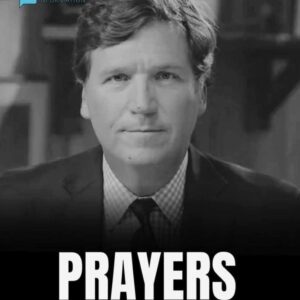In a recent and unexpected Supreme Court decision, the court issued a ruling that caught the attention of immigration law experts, policy analysts, and court observers. The decision, made on Tuesday, was a 5-4 ruling in the case Monsalvo Velazquez v. Bondi. The case revolves around the seemingly technical issue of interpreting a provision of immigration law that allows certain immigrants to voluntarily leave the United States within a specific timeframe. However, the case could have broader implications for immigration law and jurisprudence in the coming months.
While the ruling on its face seemed focused on an interpretation of procedural deadlines, it quickly became apparent that this case could signal the direction of the Court’s handling of future cases relating to immigration policy. Justices Neil Gorsuch and Chief Justice John Roberts, typically considered conservative, joined the Court’s three liberal justices in forming a majority. Their alignment on this issue is noteworthy, given that the decision itself touches on the balance between upholding strict immigration enforcement and maintaining fairness for individuals navigating a complex and often overwhelming legal system.
The Ruling and Its Immediate Impact
The Monsalvo Velazquez case revolves around a specific provision of U.S. immigration law that gives certain immigrants who are deemed to possess “good moral character” the ability to voluntarily leave the U.S. within a 60-day window instead of facing formal deportation proceedings. At issue in this case was the application of the 60-day deadline, particularly when it falls on a weekend or a federal holiday. Immigration law, like many other areas of law, is riddled with complex deadlines, and the interpretation of such deadlines can have serious consequences for immigrants.
At the heart of the Supreme Court’s decision was the argument whether these deadlines, when they fall on non-business days, should be extended to the next business day. The Court’s majority opinion, written by Justice Gorsuch, held that these deadlines must indeed be extended to the next business day, overturning the interpretations of both the 10th Circuit Court of Appeals and the Board of Immigration Appeals (BIA).
Justice Gorsuch, in his majority opinion, emphasized that the interpretation of these deadlines had long been based on established administrative practices in which deadlines falling on weekends or holidays are extended to the next business day. He referenced the historical context of this interpretation, stating that since at least the 1950s, immigration regulations had treated deadlines with the understanding that Saturdays, Sundays, and legal holidays are excluded when deadlines fall on those days. Gorsuch pointed out that this principle had been part of immigration regulations for decades, and it was not reasonable to assume that Congress had intended to create an exception to this well-established practice without stating so explicitly.
This ruling benefits the case’s petitioner, Ramon Monsalvo Velázquez, a 32-year-old resident of Colorado, who had been ordered to leave the U.S. in 2019. Velázquez had been granted voluntary departure but missed his deadline by a few days—days that, according to the Court’s interpretation, should not have counted because they fell on a weekend.
The Unusual Majority Coalition
One of the most striking aspects of the decision in Monsalvo Velazquez v. Bondi was the unusual alignment of justices in the majority. Justice Gorsuch, who was appointed by former President Donald Trump, has often demonstrated an independent streak on immigration matters, occasionally siding with immigrant rights in cases where procedural fairness is at stake.
In this instance, Gorsuch was joined by Chief Justice Roberts and the three liberal justices—Sonia Sotomayor, Elena Kagan, and Ketanji Brown Jackson. This coalition stands in stark contrast to the more typical ideological divisions in cases involving immigration, where conservative justices often align to support stricter enforcement and more literal interpretations of the law, while liberal justices tend to focus on fairness and immigrant rights.
Gorsuch’s decision to join forces with the liberal bloc on this case shows a consistent pattern of judicial independence, particularly in cases where procedural fairness and clarity in administrative practices are at issue. It highlights the broader implications of this case, as it may signal that justices like Gorsuch and Roberts are willing to interpret immigration law based on fairness and continuity with established practices, even when it diverges from strictly conservative interpretations of immigration policy.
Chief Justice Roberts, in particular, has often played a moderating role on the Supreme Court in recent years. His decision to join the majority in this case may indicate his ongoing commitment to ensuring that procedural fairness is maintained in legal proceedings, even when those proceedings involve complex issues like immigration enforcement.





